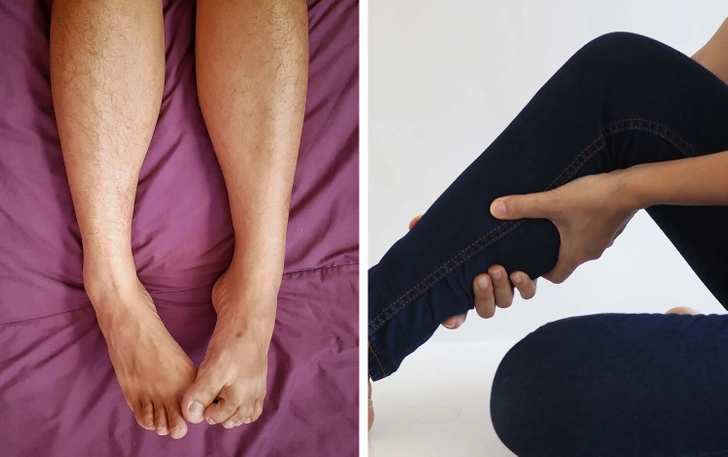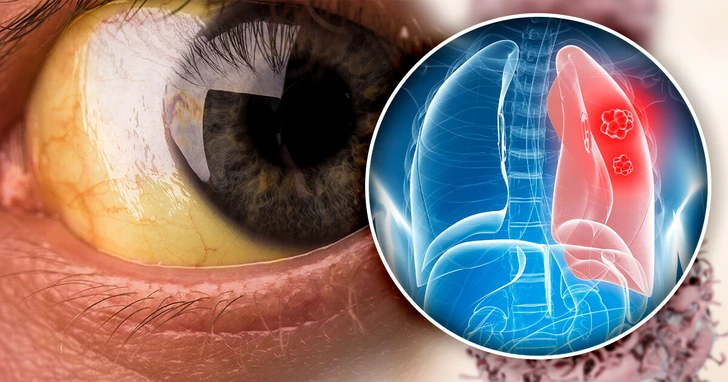Your body is like a complex machine, working tirelessly to keep you healthy. But when something goes wrong, it sends warning signals. Recognizing these signals is crucial to maintaining your health. Here, we explore 14 red flags that your body may use to alert you that it needs help. Don’t ignore these signs—acting on them promptly could make all the difference.
1. Persistent Swollen Ankles

Swollen ankles aren’t just a sign of pregnancy. If you’re not expecting, this swelling could indicate poor blood circulation, heart issues, or even an underactive thyroid. Consuming excessive salt can also cause your body to retain water, leading to swelling. However, if it persists, it’s time to consult a healthcare provider.
2. Creeping Sensation in Your Legs
Ever felt a weird, crawling sensation in your legs, especially at night? This could be a symptom of Restless Leg Syndrome (RLS), a long-term condition that disrupts sleep. RLS often causes uncomfortable tingling and a strong urge to move your legs. While not life-threatening, it can affect your sleep and quality of life.
3. Sudden Food Intolerance
When your gut struggles to process food toxins, you might suddenly develop food intolerances. Symptoms such as nausea, bloating, and diarrhea are common. If you find yourself unable to tolerate foods you once enjoyed, your digestive system might be compromised, and it’s worth investigating further.
4. Thick, Itchy Skin
Thick, itchy skin is more than just a minor annoyance. It could be a sign of hormonal imbalances, eczema, or even an allergic reaction. Persistent thickening of the skin is worth discussing with a dermatologist, as it may indicate deeper issues like diabetes or other endocrine disorders.
5. Yellowish Skin or Eyes (Jaundice)
A yellow tint in the skin or eyes is often caused by jaundice, a condition linked to liver problems. High levels of bilirubin (a bile pigment) that the liver fails to eliminate can cause this yellowish hue. If you notice yellowing, especially in the whites of your eyes, a liver check-up is necessary.
6. Changes in Handwriting and Loss of Smell
Changes in your handwriting, a diminished sense of smell, and vivid dreams could be early signs of Parkinson’s disease. While these symptoms may seem unrelated, they can all stem from the neurological changes caused by this condition. If you notice a combination of these symptoms, consult a neurologist promptly.
7. Unexplained Bruising
If you frequently find bruises without remembering any injury, your body might be hinting at a vitamin deficiency or a more serious blood clotting disorder. While a lack of vitamins like C or K can cause bruising, other conditions like hemophilia or leukemia could also be at play. Always consult your doctor if bruises appear unexpectedly.
8. Excessive Sleepiness (Hypersomnia)

Do you find yourself sleeping too much, regardless of how well you rest at night? This condition, known as hypersomnia, could be linked to autoimmune disorders, anemia, or even substance use like alcohol. Excessive drowsiness shouldn’t be ignored, as it could signal an underlying medical issue.
9. Clubbing of Fingernails
When your nails curve over the tips of your fingers, it’s called clubbing. This could be a sign of chronic lung disease or certain gastrointestinal disorders. Over time, the nails become enlarged and curve downwards, indicating serious health concerns that need to be addressed immediately.
10. White or Grey Ring Around Cornea
A white or grey ring around your cornea, known as arcus senilis, can be a sign of high cholesterol, especially in individuals under 45. While it’s harmless to vision, it could be a sign that your heart is at risk. It’s a silent signal urging you to get your cholesterol levels checked.
11. Frequent Muscle Twitches

Random muscle twitches can be caused by stress, dehydration, or even lack of sleep. However, persistent twitching could point to neurological issues like multiple sclerosis or ALS. Keep an eye on how often this occurs and discuss it with your doctor if it becomes more frequent or severe.
12. Uncontrollable Salt Cravings
Craving salty snacks occasionally is normal, but constant salt cravings might indicate an iron deficiency, anemia, dehydration, or even premenstrual syndrome. If the craving becomes overwhelming, it’s worth investigating your iron levels and overall hydration.
13. Urge to Chew Ice
The need to chew ice frequently, known as pagophagia, is often linked to iron deficiency anemia. While it may seem like an odd habit, it’s actually your body’s way of signaling that it needs more iron. A simple blood test can confirm if this is the issue.
14. Yellowing of Eyes and Skin Revisited

This symptom is crucial enough to repeat—yellow skin and eyes are hallmarks of jaundice, often linked to liver disease. It can be a sign of hepatitis, cirrhosis, or gallbladder disease. If you notice this yellowing, seek medical attention as soon as possible.
Conclusion
Your body is constantly communicating with you. While some signals might be minor, others are clear cries for help. By recognizing these red flags, you can prevent minor health issues from becoming major problems. Don’t wait until it’s too late—if any of these symptoms persist, consult with a healthcare professional. Remember, listening to your body is the best way to protect your health. Stay alert, stay informed, and prioritize your well-being.


